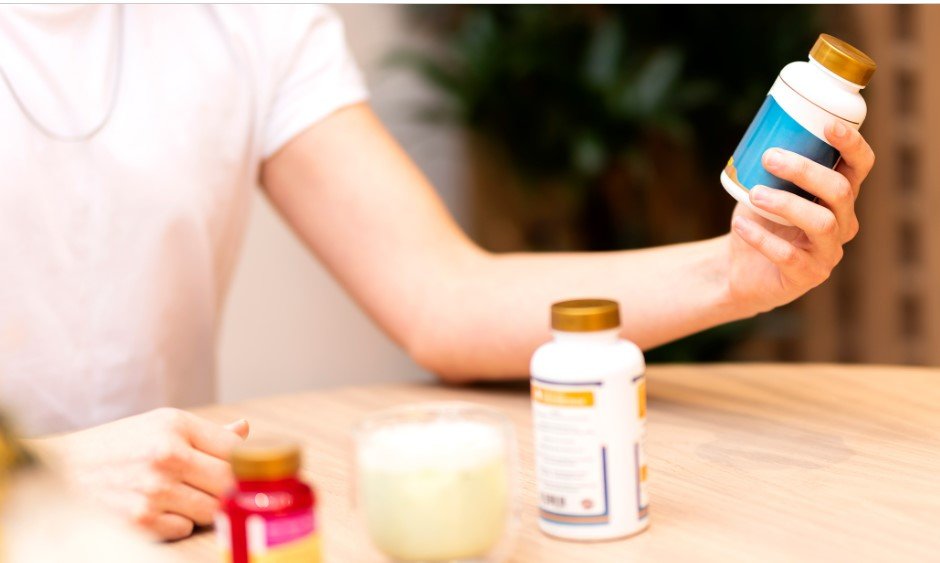Millions of Americans turn to herbal supplements like turmeric and green tea, believing they’re harmless because they’re natural. But a recent study from the University of Michigan is sounding alarms — some of these popular botanicals might actually be putting the liver at risk.
Millions Unaware of Potential Liver Risks in Everyday Supplements
It’s a scene many of us can relate to: browsing the aisles of health stores or scrolling through online shops, picking up turmeric capsules or green tea extracts with hopes of boosting wellness naturally. The booming supplement industry banks on this trust. But hold up — natural doesn’t always mean safe.
According to researchers analyzing data from the National Health and Nutrition Examination Survey (2017-2020), a surprising 4.7% of U.S. adults reported taking supplements containing at least one potentially liver-toxic botanical in just a 30-day period. That’s roughly 15 million adults regularly exposing themselves to ingredients like turmeric, green tea, ashwagandha, black cohosh, garcinia cambogia, and red yeast rice.
Dr. Alisa Likhitsup, who led the study, shared how their concern began. “We noticed cases of liver toxicity linked to herbal supplement use from patients enrolled in the NIH-funded DILIN study,” she said. Yet, the scale of usage was staggering — far beyond what anyone expected.
Why does this matter? The liver is a hardworking organ, filtering toxins, processing nutrients, and regulating chemicals. When overwhelmed or injured, it can lead to serious health problems. Herbal supplements, often assumed innocent, have in some cases triggered liver inflammation or failure. That’s a scary twist for something you might pop daily thinking it’s all good.

What’s in These Supplements That Could Hurt Your Liver?
The six botanicals flagged by the study have been linked to hepatotoxicity — basically, they can cause liver damage. Here’s a quick lowdown on each:
-
Turmeric: Widely praised for its anti-inflammatory properties, it contains curcumin. But high doses or certain extracts have been connected to liver issues.
-
Green Tea Extract: While drinking green tea is generally safe, concentrated extracts, especially in supplements, can stress the liver.
-
Ashwagandha: A popular adaptogen, sometimes implicated in cases of liver injury, although rare.
-
Black Cohosh: Used often for menopause symptoms but linked to liver damage in some reports.
-
Garcinia Cambogia: Marketed for weight loss but sometimes connected to liver toxicity.
-
Red Yeast Rice: Used for cholesterol control but may pose risks when combined with other substances.
It’s not just about whether these herbs are toxic outright; it’s about doses, individual health status, and possible interactions with other meds or supplements. Plus, because supplements aren’t tightly regulated like pharmaceuticals, quality and purity can vary wildly.
The Regulatory Blind Spot and Consumer Confusion
Unlike prescription drugs, herbal supplements don’t need FDA approval before hitting the shelves. That means companies can market them with claims that often outpace scientific backing. Consumers may assume these products are vetted and safe — a misconception that’s proving dangerous.
Studies have found contamination and inconsistent labeling in some supplements. For example, a turmeric pill may have more or less of the active ingredient than advertised, or contain unlisted additives. This murky oversight adds another layer of risk for users, especially those with underlying liver conditions or who take other medications.
Add to that the fact many users don’t disclose supplement use to their doctors, and you have a recipe for silent liver stress that can escalate before anyone catches on.
How to Stay Safe While Using Herbal Supplements
So, what’s the takeaway here? Does this mean ditching your turmeric latte or green tea pills? Not necessarily. But caution is key.
-
Talk to your healthcare provider before starting any new supplement, especially if you have liver disease, take other medications, or have a history of liver problems.
-
Avoid mega-doses or stacking multiple supplements that might tax your liver.
-
Choose reputable brands with third-party testing to ensure quality.
-
Watch for symptoms of liver distress: jaundice (yellowing skin or eyes), unusual fatigue, abdominal pain, nausea, or dark urine.
It’s also worth noting that many studies linking supplements to liver problems are based on case reports or small numbers, so risk levels can vary. Still, with millions taking these herbs regularly, awareness and education matter more than ever.
A Table of Potential Liver Toxicity Risks by Supplement
| Botanical | Common Use | Reported Liver Risk | Notes |
|---|---|---|---|
| Turmeric | Anti-inflammatory | Hepatitis, cholestasis | Risk higher with supplements, not tea |
| Green Tea Extract | Antioxidant, weight loss | Acute liver injury | Concentrated extracts more risky |
| Ashwagandha | Stress, adaptogen | Rare cases of hepatitis | Usually well-tolerated |
| Black Cohosh | Menopause symptoms | Liver failure reported | Risk debated, caution advised |
| Garcinia Cambogia | Weight loss | Liver damage cases | Conflicting evidence |
| Red Yeast Rice | Cholesterol control | Hepatotoxicity | Risk increases with statin-like compounds |
Millions hope herbal supplements will boost health naturally, but this new research serves as a wake-up call: your liver might be paying the price.
Are we blindly trusting “natural” without asking enough questions? Maybe it’s time to pause, research, and chat with a doc before tossing those capsules in your cart.
